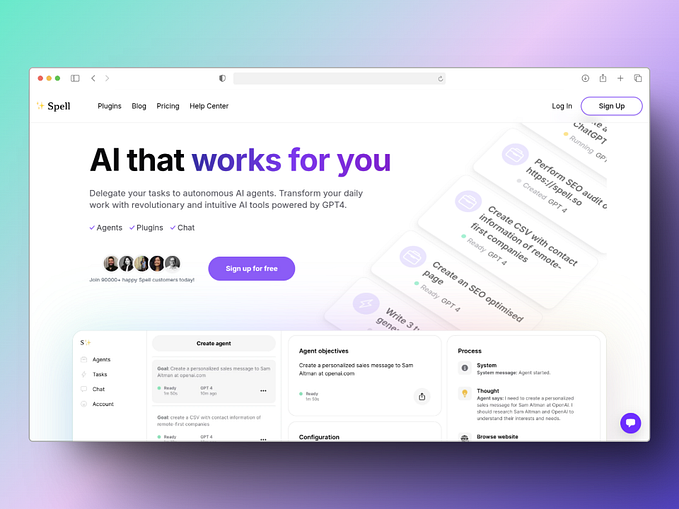How To Get Your Dissident Ideas Heard In The New Media Environment

I often say that my long-term goal here is to become obsolete so that I can focus on making art and poetry. Ideally this will look like our society shifting to a mode of operation that is so healthy that there is no longer any demand for an Australian political blogger who points out the fact that it’s wrong to manipulate public thought with mass media and drop explosives on children, but I’ll also settle for a world in which there are enough people doing this sort of thing that I’m no longer wanted or needed in this role.
Toward that end, and because I’ve been getting some requests for advice on how people who want to do what I do can get started, I’m going to try to tap out a few tips. I’ve caught some lucky breaks and been really blessed and supported in a bunch of frankly miraculous ways on this weird and wonderful journey, but there are also some concrete pointers I’ve picked up along the way which I employ constantly. Here they are for anyone who’s interested in getting their ideas heard in the people’s information rebellion against the establishment propaganda machine:
1. Create daily content.
This is honestly the most important one. Whether you make blogs, podcasts or videos, the best way to build an audience is to become a part of people’s everyday routine; something they can enjoy over coffee in the morning or on the train on their way to work. If you’re making high-quality content on a daily basis, this will necessarily happen, and the more shareable your content (more on that in a minute), the quicker it will occur.
Just as importantly, creating daily content forces you to always be coming up with new ideas, to always be learning, to always be looking at the dynamics that are occurring in your world and finding new ways to define and criticize them. Mentally keeping your focus on finding new ways to fight the machine ensures you’re always putting creative energy into new ideas, in the car, in the shower etc, and ensures you’ll always be upping your game. Constantly finding new ways of attacking the status quo and the establishment upon which it rests will give you fresh content that your audience will want to tune in for.
It’s okay if you miss a day here and there (I do), but as close to daily as possible is ideal. If you only make small pieces of content like tweets or short videos, you might want to go more often than that to stay on your audience’s radar.
2. Speak directly to the people.
I never submit anything I write to any outlets of any kind; I bypass the usual publishing gatekeepers and address all of my material directly to readers in a way that’s interesting and relatable. If you want to try and get picked up by a publishing outlet that’s fine, but don’t tailor your message to them, because while they might have a large readership they’re not where your audience is going to come from. Traditional outlets, even online ones, are fast becoming obsolete in a new media environment where people have the ability to find and share their own favorite voices and collectively elevate them to get them heard.
So speak directly to the people who’ll be hitting that share or retweet button, because they’re the ones who matter, not the obsolete media gatekeepers. Don’t censor yourself in any way just because it wouldn’t be approved of by Counterpunch or Truthdig or won’t get shared by the blue-checkmarked pundits on Twitter. There aren’t really any leaders in a people’s information rebellion, so ignore anyone who sets themselves up as one and write directly to the people. Spurn the approval of the gatekeepers.
3. “Get it right and don’t be boring.”
The two rules of journalism, and really of political commentary of any kind.
If you want your audience to trust you, it’s important to get your facts right. There are really solid alternative media journalists who are dogged on a daily basis for getting their facts wrong about what’s going on in Syria, for example, and, despite having since reversed their position, their ability to do good in the world has still been irreversibly harmed by having gotten it wrong the first time around.
At the same time, it doesn’t matter how right you get it if people don’t view your content. Luckily, since you’re addressing the people and not trying to go through any gatekeepers or mediators, you’re unhindered by limitations on how you can do that. There’s a new progressive commentator named Ty Ntefalle who’s making political commentary videos on Facebook dressed in a wild new costume every day, and it’s awesome. I’ve never seen anybody do that before, and people really love it. Your own imagination is the only limit on ways you can shine bright and grab people’s attention, and the less afraid you are to be noticed the more people will hear what you have to say. People will call you an attention whore and all that crap, but fuck ’em; if you think your ideas are worth hearing you mustn’t let them shame you out of the spotlight. Be as funny, as fabulous, as shocking, as daring and as loud as you like. Just make sure you get it right while you do it.
4. Be the one who says what everyone’s thinking but is too afraid to say.
This is another advantage independent media voices have over outlet-controlled ones; you can always be the one in the room to say the thing that needs to be said without waiting for anyone’s approval. If you can put something into words that nobody else has yet, be the first to say it and you’ll be uplifted by the crowd as they say “Yes! This! We think this too!”
5. Try to make the share version of your content look as much like a meme as possible.
The best way to get shares on social media isn’t just to write a really good essay or put out a really good video, it’s to make it something people will want to share even if they haven’t read it. Try to get your entire message into the title, and have a picture that goes with the title. Here are a few examples of what my shares look like on Facebook and Twitter, to show you what I’m talking about:



See how they all work kind of like a classical internet meme, with an image and the text of the message I’m trying to convey? They’re like memes that you can click on for a more fleshed-out argument with hyperlinks and stuff. I can’t always do this because sometimes my ideas are too abstract, but when I can I always get way more shares on them, which always translates to more views. Even when people share without reading, it’s like you get a bunch of free signboard advertisers saying “Hey! Look! Article over here!”
Make your headlines as attention-grabbing as possible, but make them truthful; don’t indulge in clickbait. I will repeat myself in all caps: ***DO NOT INDULGE IN CLICKBAIT***. If your headline gets a click, you’ve got to deliver what your headline promises or you’ll quickly lose your audience. If you’ve got an article titled “Adam Schiff Is An Evil Bug-Eyed Fascist” with a picture of Schiff’s bug-eyed face, on the other side of that click there needs to be an articulate explanation as to why he’s an evil fascist. If you’ve got a feature image of John McCain with a headline that says “Please Just Fucking Die Already”, you’d better have an article on the other side of that click making a strong argument for why it would be good if John McCain finally fucking died.
6. Be authentic.
People love authenticity, but they only like the real kind and they can tell the difference. At some point you’ll be confronted with the choice of either (A) speaking your truth or (B) telling your audience what you know they want to hear, and the long-term best decision is always (A). Only say what you believe to be the truth, and say it even if it will offend your audience.
Be emotionally honest, too. If something’s upsetting you, say so. If you’re having a bad day and you’re worried you won’t be able to make a quality video or article or whatever, let your audience know. Be real. Not “Look how real I am” real, but real real. Vulnerably real. Again: people can tell the difference.
7. Get a feel for riding the zeitgeist.
This one’s the hardest to master, but it’s really important if you want to get your voice out there without whoring yourself out to some censorious and agenda-laden outlet.
If you can get a feel for where the energy of the masses is headed, then you can learn how to kind of “surf” that energy by placing your ideas on top of it and letting the crowd carry them into virality. You’re going to get a lot more shares on an article about your opinions on climate change, for example, at a time when the zeitgeist is crackling with concern about recent hurricanes or fires. You’re going to get a lot more shares on your opinions about rape culture at a time when #MeToo is widely buzzing. If you can find where the energy is and which way it’s moving, you can put an idea on it and let that energy carry it into public consciousness like sending a message in a bottle down a stream.
The best way to get a feel for this is to roll your sleeves up and participate in social media. When you see me arguing with people on Facebook or Twitter, it’s not because I like wasting energy debating people who disagree with me; it’s my way of getting a feel for what the hot arguments at the time are about a given topic and where the energy of the crowd is moving. And honestly the more contentious you are the more fruitful your engagement will be, because everyone who opposes you will scramble forward to bring you their very best arguments against your position, and you’ll be able to learn those arguments while gauging how hard the pushback is.
In the old media environment, there were a few platforms which had total control over whose voice got heard and how often, and those outlets have been fully controlled by establishment power. Now, even alternative media outlets with a strong anti-establishment bent to them are becoming obsolete as individuals gain the ability to elevate anyone who shines bright and makes good arguments, allowing for a truly democratized media environment. This is exponentially more difficult for oligarchic power to control, which is why they’re currently trying to negotiate the extremely delicate dance of putting the squeeze on all the myriad dissenting voices without exposing themselves as totalitarian fascists and thereby losing their ability to manufacture consent. If more and more of us begin creating our own content, this will get harder and harder for them to do, and eventually it will become impossible.
And then the people will have won.
_________________
The best way to get around the internet censors and make sure you see the stuff I publish is to subscribe to the mailing list for my website, which will get you an email notification for everything I publish. My articles are entirely reader-supported, so if you enjoyed this piece please consider sharing it around, liking me on Facebook, following my antics on Twitter, checking out my podcast, throwing some money into my hat on Patreon or Paypal, or buying my book Woke: A Field Guide for Utopia Preppers.

Bitcoin donations:1Ac7PCQXoQoLA9Sh8fhAgiU3PHA2EX5Zm2










